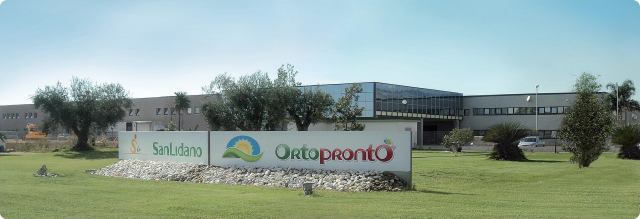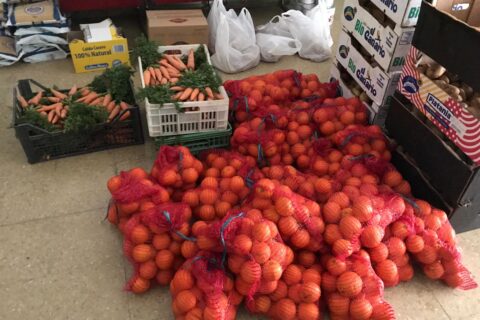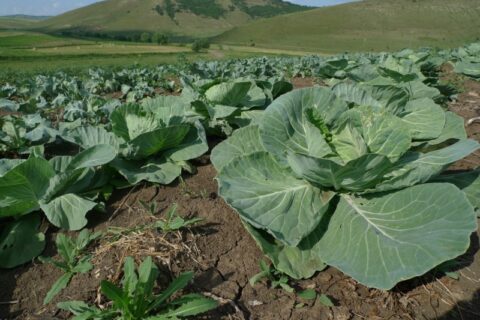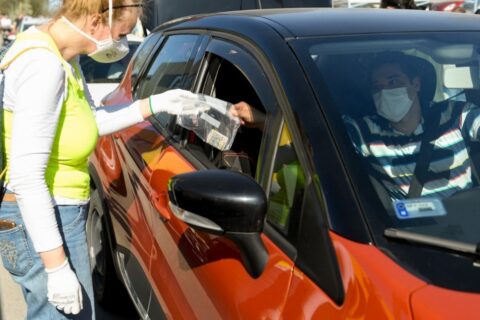
Name of the initiative? San Lidano
Country Italy
Region Latina and Bergamo regions
What kind of initiative Farming/production, processing, marketing
Key words Cooperative, fresh cut salad
The Story
In the 1990s, the Di Pastina family had an idea to develop fresh packaged ready-to-eat salads from their vegetable farm in Agro Pontino. Nobody was doing this in the Latina region, so not many people believed in it – packaged salads were produced mainly in the North, near Bergamo. It was impossible to do alone, but the entrepreneurial Di Pastina family knew the farmers of Agro Pontino had a great heritage and knowledge of growing vegetables, so they reached out to their neighbours to start a cooperative: San Lidano.
It was hard investing a lot of money in something that is not sure, but with financial support from the European Union, Lazio being considered a disadvantaged area, the ten-farm collective were able to buy a small factory for packing their salads.
Business increased quickly, membership of the cooperative grew to fifty, and a larger factory was needed. This was built in 2010, and four years later a second factory was built in Bergamo. With a third of produce going to Bergamo, farmers are still able to pick salad early in the morning and it can arrive packaged to a customer in the North of Italy in the evening of the same day.
Membership has been stable since 2010, adding only one or two each year. We now have 68 members and we also have agreements with external farmers in other areas of Italy where the climate is different to ensure we have a constant supply of fresh salad throughout the year. Most vegetable farmers in our region wanting to join San Lidano already have. Fresh-cut isn’t for everyone. New members need a to have a medium/large farm no less than 5-10 hectares.
In the beginning there was a large profit margin of 8% but there were a lot of costs. Over the last 10 years, the margin has decreased to 4% but we are more established. Members are guaranteed a minimum amount from the coop. At the end of the year, there is part of the benefit that stays in the coop, but the rest is shared between the members.
San Lidano has grown from 1 million to almost 60 million euro per year turnover, has 200 employees and seasonal workers, and is one of the top ten players in the fresh cut salad market in Italy. The chair is Luciano Di Pastina – grandson of the first Mr Di Pastina who started this work. San Lidano have the only fresh-cut-salad factory in Southern Central Italy, and this has had a strategic impact on the way the industry has evolved. We are near Rome and Rome is a great market.
Although San Lidano has its own brand, OrtoPronto, around 60% of salads are supplied for the private labels: 12 Italian supermarkets use us for their own salad brand. There are many technical requirements, not only is there a short shelf life, but there are lots of restrictive standards in terms of use of chemicals and contaminants, as well as social responsibilities. These are getting tighter all the time. This is where I come in – to ensure our quality standards match what is necessary to supply the supermarkets.
I joined San Lidano in September 2017 as director of quality systems and marketing. I’m an agronomist, with a 35-year background in fruit and vegetables especially in respect to quality standards. I am also the quality manager for Legacoop – the National Association of Cooperations in Italy.
One of the main challenges for the company has come to light as we evolve from a small cooperative of farmers and families to a larger industry. This effects strategy and organisation. People find this hard. It’s the most important aspect of my work – not only the quality of the product, but also the process and the quality of the organisation.
The second challenge for the company is to keep our position in the market. It’s developing very quickly and there is a phase of great revolution in the retailer world. We need to be focusing on the strategy for the next ten years – marketing, new technologies, new products, in order to grow. Always the customer wants more quality at a lower price. The only way is to organise well and get rid of any unnecessary cost, without negatively impacting quality. We need to involve our farmers and help them understand the legal requirements of this evolving market in Italy. The workers in the field need to be aware of new techniques and new varieties. It’s usually easier with young farmers, but we also need to explain the changes to farmers in their 60s and 70s. It’s important to take care of all our members. We communicate through institutional meetings and a general assembly twice a year. We have agronomists working in an advisory and training service supporting the farmers on technical aspects, quality and the requirements of the markets. We invite our farmers to participate in meetings with companies that produce new chemicals or new biological products or a new technical approach or system of irrigation, or new fertilizers to encourage their participation and introduce new systems. Some of our farmers are very active, but others don’t participate at the meetings or have the same level of knowledge, so these we must visit.
We use the normal channels we can get from the EU. The funds we receive are managed by our regional institution. We present our demands respecting the different voices and the rules. We know that there will be a review of CAP after 2020 and we don’t know what might change. San Lidano must be ready to respond.
We are still in a boom of fresh cut in Italy. 18% of people buy fresh cut every day. It used to be 3%. At this moment we don’t see a decrease of this trend, and this is good for our cooperative. The members believe in a common strategy. Our principle is: Stay together to do more.
Additional information
http://www.sanlidano.it/
http://www.sanlidanogroup.it/
—
Repository compiled by: Giulio Benvenuti
E-mail contact: giulio.benvenuti@sanlidano.it



